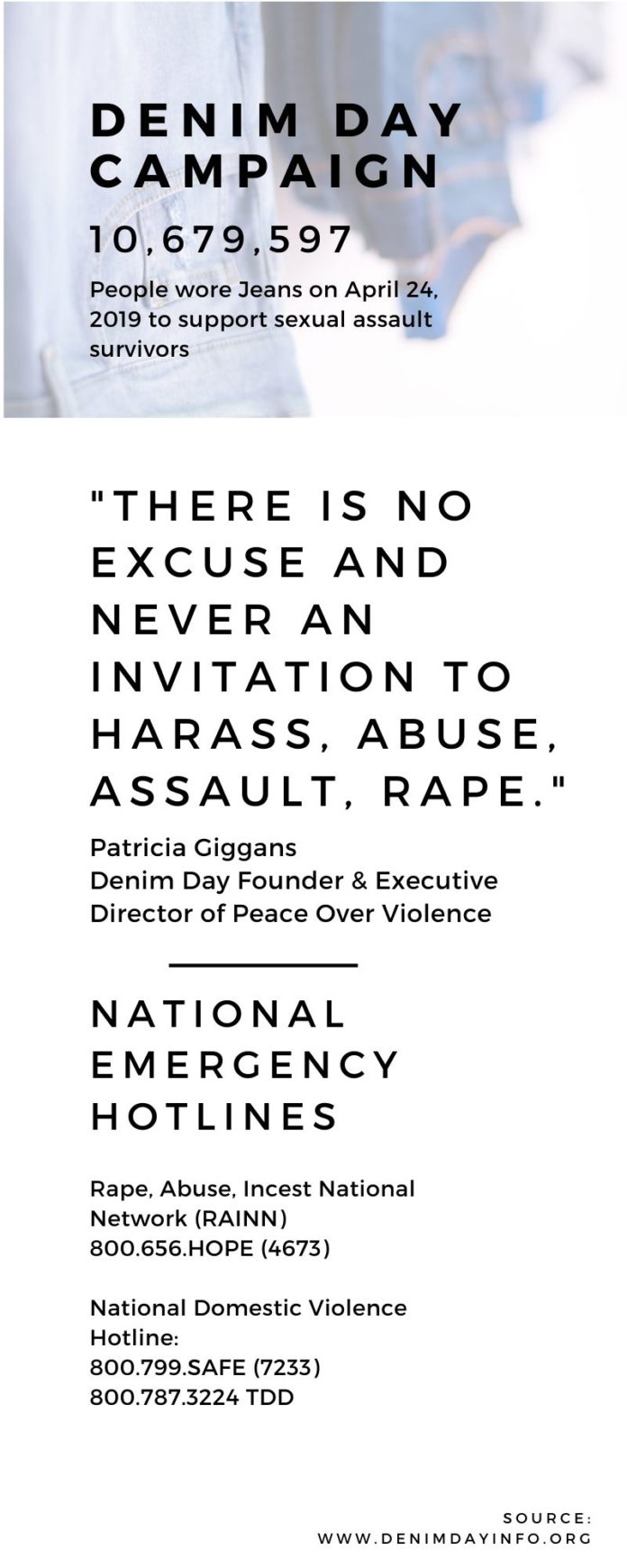The Healthy Outreach Through Peer Education (HOPE) and the Women’s Center collaborated virtually to celebrate Denim Day, an annual day in April to support the victims of sexual assault.
The campaign reached about 30 people who shared their stories with HOPE, according to Elizabeth Kline, a junior public health major, gender studies minor and HOPE Peer Educator.
The backstory about Denim Day began in the 1990’s in Italy when an 18-year-old girl was raped by her driving instructor. The instructor was persecuted but later appealed the conviction and was set free. According to the court, after looking at the evidence, the girl’s jeans were too tight to be taken off without assistance, thus creating consensual sex.
Erin O’Connor, the graduate assistant for both the Women’s and Pride Center, pursuing a graduate degree in student affairs and higher education, said that many, including herself, find the actions and reasoning of the court ridiculous.
“What someone is wearing in not an indicator as to whether someone was sexually assaulted or not,” O’Connor said.
HOPE reached out to O’Connor to collaborate virtually on the Denim Day campaign this year. Kline said that the organization still wanted to show support of the survivors and encouraged others to wear denim on Wednesday.
“[Sexual assault] is an uncomfortable topics to talk about,” Kline said. “A lot of people don’t want to talk about it, but since we are health educators and promoters, we have to be comfortable talking about the things that are uncomfortable.”
Kline finds that it is the responsibility of herself as a HOPE Peer Educator to educate others are misconceptions of sexual assault.
O’Connor agrees that the educational aspect of the campaign is one of the most important. She hopes that even if those who did not participate by sending in a picture will at least read the information included in every post, or clicked on the Denim Day website link for more information.
“It’s trying to dismantle a culture that we have built in understanding that what an individual is wearing can be indications as if they are asking for sexual activity in some form,” O’Connor said.
Kline, said that HOPE stands with solidarity with survivors.
The campaign is about supporting the survivors of sexual assault and letting them know that they are not alone. Supporting survivors also means educating oneself on sexual assault, according to O’Connor, and said that among college communities in certain populations, sexual assault is a large issue.
O’Connor wants to provide as much information as possible for those to understand what consent means.
“This took place in the 90’s and I can’t say for sure how that would happen today, but it’s showing that we really do need to be educating broadly because it’s the court system that made the mistake,” O’Connor said. “Hopefully they can take this education and put it in more systems.”









